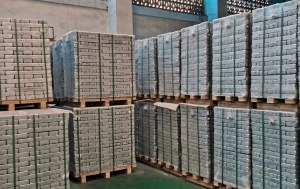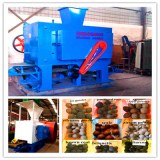Magnesium is a metallic element that is commonly found in the Earth's crust. It is a lightweight and highly reactive metal that is used in a variety of applications, from the construction of aircraft to the production of batteries. One common question that people often ask is whether magnesium is a soft metal. In this blog post, we will explore the properties of magnesium and determine whether it can be considered a soft metal.
What is a soft metal?
Before we can determine whether magnesium is a soft metal, we first need to understand what a soft metal is. In general, a soft metal is one that is relatively easy to deform or shape. Soft metals typically have a low tensile strength and a high ductility, meaning that they can be stretched or shaped without breaking. Common examples of soft metals include lead, tin, and aluminum.
Properties of Magnesium
Magnesium is a silvery-white metal that is known for its lightweight and high strength-to-weight ratio. It is the eighth most abundant element in the Earth's crust and is commonly found in minerals such as dolomite and magnesite. Magnesium material is highly reactive and can ignite spontaneously in air, making it a valuable material for pyrotechnics and flares.
In terms of its mechanical properties, magnesium is relatively strong and has a high tensile strength. However, it is also quite ductile and can be easily deformed or shaped. This is due in part to its hexagonal crystal structure, which allows for easy slip of the crystal planes when a force is applied. Additionally, magnesium has a relatively low melting point of 650°C, which makes it easy to melt and cast into a variety of shapes.
Is Magnesium a Soft Metal?
Based on its mechanical properties, it is safe to say that magnesium metal can be considered a soft metal. While it is stronger than many other soft metals such as lead and tin, it is still relatively easy to deform or shape. This makes magnesium a valuable material for a variety of applications, from the production of lightweight alloys to the construction of lightweight structures.
However, it is important to note that the term "soft metal" is somewhat subjective and can vary depending on the context. For example, compared to steel or titanium, magnesium would be considered a relatively soft metal. But compared to lead or tin, it would be considered relatively hard. Therefore, when discussing the properties of magnesium, it is important to consider the context in which it is being used.
Conclusion
In conclusion, magnesium metal or nonmetal can be considered a soft metal based on its mechanical properties. While it is stronger than some other soft metals, it is still relatively easy to deform or shape. This makes it a valuable material for a variety of applications, particularly those that require a lightweight and strong material. Whether you are working in the aerospace industry or the construction industry, magnesium is a versatile metal that has many useful properties.
Looking for high-quality magnesium metal products? Look no further than Yirui Metal! Our range of magnesium ingots, powders, and granules is perfect for a variety of applications.
If you want to know more details of magnesium metal nonmetal or metalloid, please visit our website.
Location : No.8 QianHe east road, ZhengYu town, HaiMen city, 226153 Nantong,
Contact : Metal yirui, 0512 55275906







